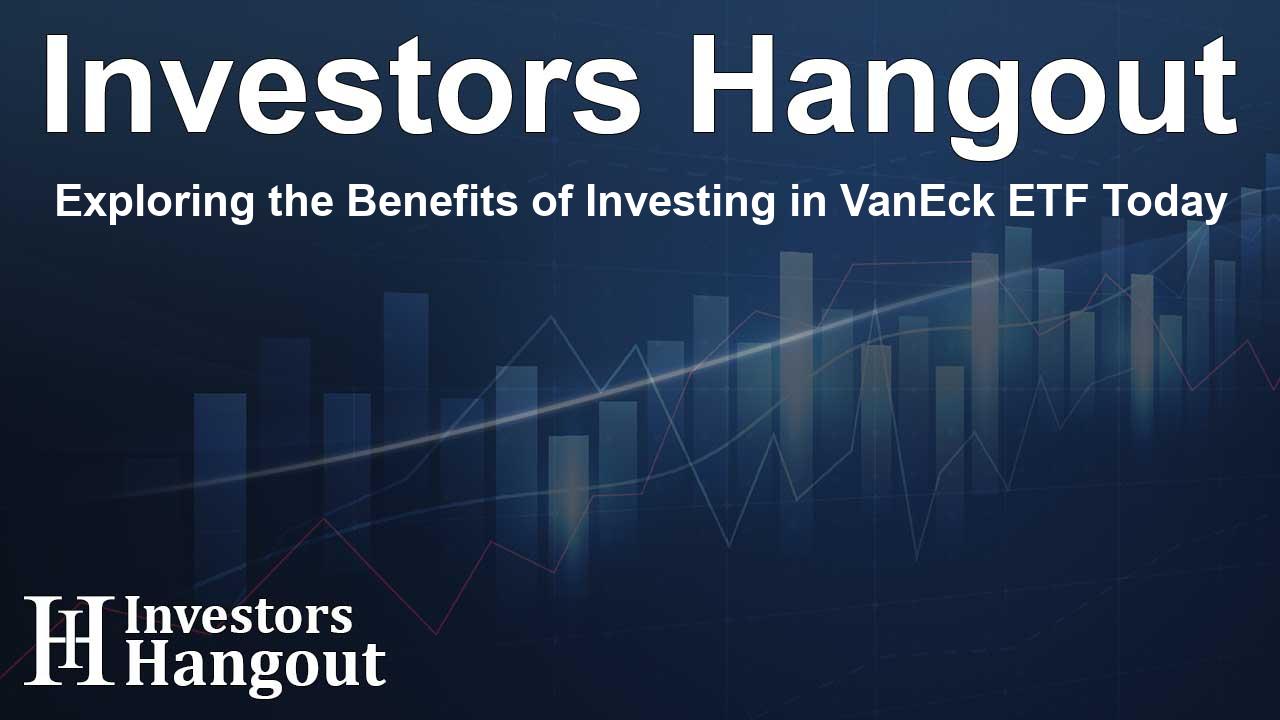Exploring the Benefits of Investing in VanEck ETF Today

Why Investors Turn to ETFs
Investors frequently gravitate towards exchange-traded funds (ETFs) as an alternative to purchasing individual stocks. This approach can mitigate the risks associated with investing in specific companies, especially for those who may not possess extensive market knowledge. With various factors influencing stock performance, particularly within volatile sectors, an ETF can provide a more stable investment option.
This trend is evident in the semiconductor sector, where stocks can experience dramatic fluctuations. While organizations such as Nvidia have shown remarkable recovery from past downturns, others like Intel have faced recent challenges, leaving potential investors hesitant and cautious.
Introducing the VanEck Semiconductor ETF
One ETF that deserves consideration in the semiconductor industry is the VanEck Semiconductor ETF (NASDAQ: SMH). This fund's strategy involves allocating its assets among 26 of the leading semiconductor stocks, making it a focused yet diversified investment option.
Nvidia is the fund's top holding, comprising about 21% of its portfolio. Following closely is Taiwan Semiconductor Manufacturing Company, which accounts for approximately 13%. Broadcom also holds a significant share, amounting to 8%. The other investments in the fund are smaller, each representing less than 5%, yet they include notable names like AMD, ASML, and Micron.
Performance and Costs of VanEck ETF
Current performance indicators show that the VanEck ETF has experienced a notable increase of around 47% this year. However, it is crucial to recognize that this is within a broader uptrend characteristic of the semiconductor market. Investors should also consider the historical performance of the ETF, which has averaged a remarkable annual return of 26% since its inception in December 2011. This translates to a hypothetical $10,000 investment at that time growing to around $201,000 today. When observing the last decade, this average climbs slightly to 27%.
The fund's cost of investment is also appealing, featuring an expense ratio of just 0.35%. For context, the average expense ratio for ETFs in 2023 hovers around 0.36%, indicating that VanEck's offering is both competitive and favorable relative to its returns.
Comparative Analysis with Established ETFs
The VanEck Semiconductor ETF can be effectively compared to the SPDR S&P 500 ETF Trust. While the latter represents a broader investment across 500 companies, it comes with a significantly lower risk profile and a lower expense ratio of only 0.09%. However, the performance metrics favor the VanEck ETF, with an average annual return of 11% for the SPDR fund since its inception in 1993, compared to a much higher average of 26% for the VanEck ETF.
The SPDR ETF's total return for a $10,000 investment since inception is about $236,000—a relatively modest increase considering its longer history in the market. Furthermore, with a ten-year average return of only 13%, it becomes clear that investors willing to take on modest risk with the VanEck ETF have seen superior returns.
Making a Case for Investment in VanEck ETF Trust
For those looking for a straightforward yet potentially rewarding investment in the semiconductor industry, the VanEck ETF stands out as an excellent option at present risk levels. Although investing in a single sector can carry inherent risks, particularly in a volatile market such as semiconductors, the potential for high returns is compelling.
Investors should be mindful of the concentration in 26 stocks, as this may not provide sufficient diversification for those with lower risk tolerance. Nonetheless, the VanEck ETF's historical outperformance compared to the S&P 500 index, along with its culled expense ratio of 0.35%, makes it a tempting choice for tech-focused investors looking for growth.
Should You Invest Now?
Before contemplating an investment in the VanEck ETF Trust - VanEck Semiconductor ETF, it is advisable to weigh the current market conditions and the ETF's past performance. Staying informed about the market and exploring various investment strategies is crucial for financial success.
Frequently Asked Questions
What is the VanEck Semiconductor ETF?
The VanEck Semiconductor ETF is an investment fund that focuses on a diverse range of top semiconductor stocks, aiming for substantial returns.
How has the VanEck ETF performed historically?
Historically, the VanEck ETF has averaged a 26% annual return since its inception in 2011, showcasing strong performance in a volatility-prone sector.
What are the primary holdings in the VanEck ETF?
The primary holdings include Nvidia, Taiwan Semiconductor Manufacturing Company, and Broadcom, among others, contributing significantly to its overall performance.
What is the expense ratio of the VanEck ETF?
The expense ratio is 0.35%, which is competitive when compared to the average expense ratio of 0.36% for similar funds.
Is the VanEck ETF suitable for all investors?
While the ETF presents strong growth potential, investors should consider their risk tolerance and the volatility associated with concentrated semiconductor investments.
About The Author
Contact Caleb Price privately here. Or send an email with ATTN: Caleb Price as the subject to contact@investorshangout.com.
About Investors Hangout
Investors Hangout is a leading online stock forum for financial discussion and learning, offering a wide range of free tools and resources. It draws in traders of all levels, who exchange market knowledge, investigate trading tactics, and keep an eye on industry developments in real time. Featuring financial articles, stock message boards, quotes, charts, company profiles, and live news updates. Through cooperative learning and a wealth of informational resources, it helps users from novices creating their first portfolios to experts honing their techniques. Join Investors Hangout today: https://investorshangout.com/
The content of this article is based on factual, publicly available information and does not represent legal, financial, or investment advice. Investors Hangout does not offer financial advice, and the author is not a licensed financial advisor. Consult a qualified advisor before making any financial or investment decisions based on this article. This article should not be considered advice to purchase, sell, or hold any securities or other investments. If any of the material provided here is inaccurate, please contact us for corrections.
